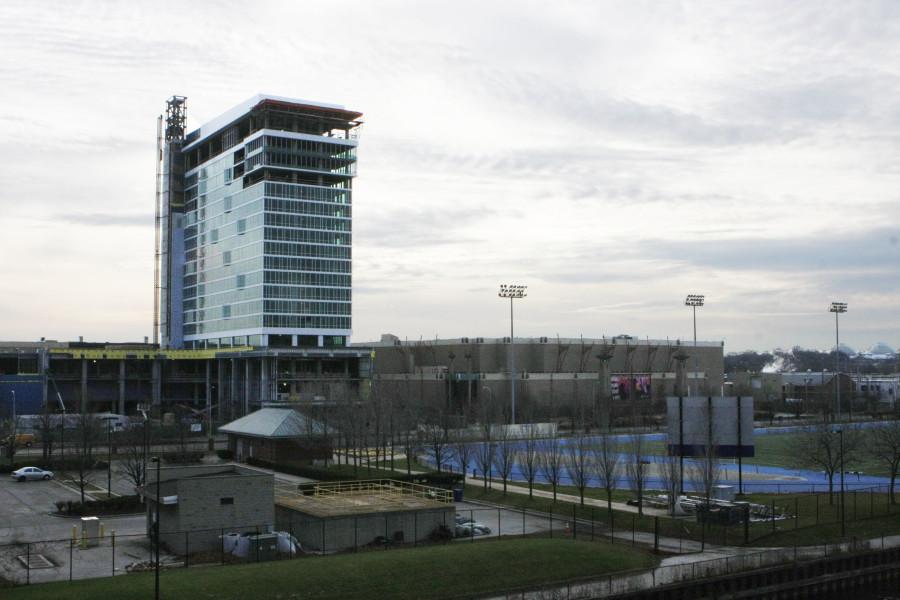 Smoke fills the air as five angry, balding men sit around a table as a quiet disgruntled dealer hands out cards. One of them mumbles about how you’re not playing the game correctly. Welcome to Potawatomi Bingo Casino.
Smoke fills the air as five angry, balding men sit around a table as a quiet disgruntled dealer hands out cards. One of them mumbles about how you’re not playing the game correctly. Welcome to Potawatomi Bingo Casino.
These 21+ meccas had such mystique when I was younger. The shiny, noisy slot machines, the green felt covered tables, the excitement when someone wins, they were all things that I always eyed wondrously.
On my 21st birthday I went down to Potawatomi and practically sprinted to the door. I showed the guard my driver’s license, he wished me a happy birthday, and I went down the escalator ready to strike it rich.
Now, almost a year later, the last place I want to be is the casino. I didn’t lose any money, in fact I made some, but the allure and magic it held for me when I was younger disappeared. In its place is a smoke filled, cranky allusion of a place I once held in such grandeur.
Gov. Scott Walker is issuing his decision Tuesday on the Menominee tribe’s casino proposal in Kenosha. The governor is reportedly seeking the approval of all of the Wisconsin tribes before he issues his final decision.
The Forest County Potawatomi and the Ho-Chunk Nation are the only two tribes that are withholding approval, both stating that the new casino would hurt their current businesses.
The fact is the casino is going to stimulate the economy and the state of Wisconsin.
An article on WUWM said the coalition “Enough Already” believes the influx in legalized gaming in the state will create an unstable economy where the four tribes with casinos would be in intense profit-sharing battles.
That couldn’t be further from the truth. The project has an almost unanimous backing, even gaining the support of one of the other “casino tribes” – the Oneida. Project planners believe the completed casino will generate 5,000 jobs, according to WUWM. The U.S. Department of the Interior gave approval to the project and, according to the Bureau of Indian Affairs, the losses projected by the Potawatomi and Ho-Chunk tribes will not occur.
Frank Fantini said to WUWM that the areas surrounding Kenosha, Lake County, Ill., and Milwaukee make up approximately 2.9 million people. That puts the Kenosha casino in an area similar to St. Louis that sustains $1 billion per year in gambling revenue, something he sees happening here if the casino is approved.
The casino will do nothing but benefit the Wisconsin economy by creating jobs and attracting tourists. Although the casino would be nontaxable, the individuals employed by the tribe and the Native Americans living off-reservation could still be taxed.
The state can and should approve another casino. The casino is primed for an untapped market, and the negative consequences are low. If Wisconsin doesn’t do it, Illinois likely will. Not only will the casino raise tourist rates, but the employment opportunities it will offer are second to none.
The Milwaukee Common Council voted unanimously on a resolution to Gov. Scott Walker to reject the proposal. The city feels that the proposed casino is going to take business from the City of Milwaukee and bring it to Kenosha.
That will happen, yes. People may take some of their business to Kenosha. For the first few years that the Kenosha casino is open, there will be fluctuations in business, but eventually the economy will stabilize and both Kenosha and Milwaukee will reap the benefits of the increased tourism.



